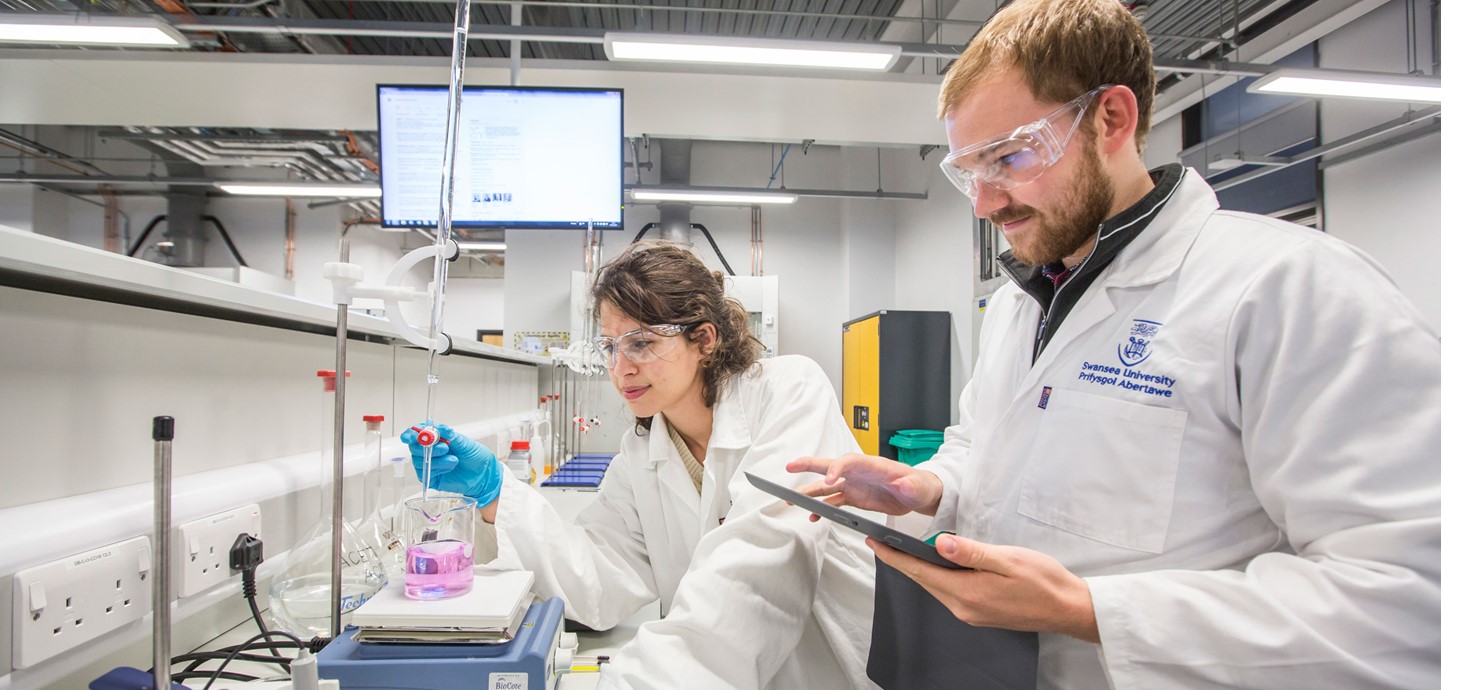These articles are now archived and will no longer be updated.

Swansea University’s commitment to sustainability has led to a double achievement.
It has not only achieved the Carbon Trust Standard for Waste certification for its work to reduce waste around its campuses, but it has also enjoyed success as part of the Laboratory Efficiency Assessment Framework (LEAF), which encourages participating universities to make their research and teaching more resource efficient.
Head of Sustainability Dr Heidi Smith said the recognition was particularly significant as the University marked Recycle Week 2020.
She said: “We have been making significant improvements in the use of resources which is so important as we experience the impact of Covid-19 and the climate emergency.
“At the University, students, academic and professional services staff work with the community and businesses to ensure this positive approach to our environment reaches all areas of the organisation and way beyond.”
Hugh Jones, from the Carbon Trust added: “We are pleased to have worked with Swansea University to advance its sustainability agenda by certifying its waste reductions to the Carbon Trust Standard for Waste.”
With support from waste management provider Veolia, the University achieved a 15 per cent waste footprint reduction between July 2017 and August 2020.
This helped the University achieve the Carbon Trust Standard for Waste, along with a 75 per cent score in the qualitative assessment. Swansea University performed particularly well in measurement and implementation practices for waste management.
The Carbon Trust assessment provides independent recognition of the University’s waste reduction and waste management credentials and recognises the progress Swansea is making in applying effective governance, waste measurement and waste management processes. The certification period runs from 2020 to 2022.
Meanwhile, academics have been embracing sustainability when it comes to their work. As a research-intensive university, Swansea has a significant number of highly specialised laboratories and workshops which rely on energy, materials and equipment and generate a wide range of waste.
To reduce their environmental impact, more than 150 staff working in laboratories in the College of Engineering, College of Science and the Medical School joined the LEAF initiative alongside other leading institutions including Oxford and Cambridge universities and the Francis Crick Institute.
LEAF was created by Martin Farley at University College London as a new tool to help researchers, staff and students improve the sustainability and efficiency of teaching and research labs.
After their second year using the tool, 17 of Swansea’s labs have achieved a bronze standard with one gaining silver after making a series of changes to how staff work.
The tool allows users to be innovative, to develop and implement their own approach and then share findings and best practice. For example, there has been a significant reduction in costs and C02 in the chemistry teaching labs simply by closing the fume hoods more.
Swansea University’s Vice-Chancellor Professor Paul Boyle said: “It is fantastic to see the progress that our University is making in such an important area, thanks to the efforts of so many staff across our institution. These are achievements in which both our staff and our students can take great pride.”
The University is currently ranked 9th in the UK in Guardian-published People and Planet University League and Professor Boyle said it remained eager to do more to achieve greater sustainability and resource efficiency.
He said: “We are building on this excellent work by developing an ambitious Sustainability Strategy that will shape the University for the next five years and help us move towards achieving our ultimate aim of being a carbon neutral institution by 2040.”
